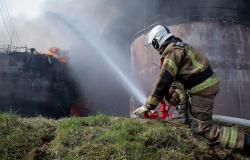In Laurien Ham’s recent dissertation, entitled ‘What about us? Experiences of relatives during end-of-life cancer care and bereavement’, attention is paid to the often neglected group surrounding cancer patients: their loved ones. The research highlights the emotional, social and existential challenges that relatives of patients with incurable cancer face in the last year of their loved one’s life.
The research was conducted by IKNL (1), in collaboration with Tilburg University and was presented for promotion on March 25,
The results of Ham’s research show that the emotional well-being of loved ones decreases significantly during this period. A lack of sufficient support from healthcare providers, combined with increasing pressure on informal caregivers due to social developments, reinforces this problem. Ham’s study shows that there is an urgent need for more knowledge and support for loved ones, specifically aimed at recognizing and dealing with the physical and emotional complaints of their loved one.
Factors that influence well-being
Factors such as the patient’s sleep problems and the patient’s receipt of potentially inappropriate care can have a negative impact on the emotional well-being of loved ones. On the other hand, more care continuity, including a fixed point of contact for both patient and loved one, can contribute to a less significant decline in this well-being.
Support for patient and loved one
Ham emphasizes the importance of a holistic approach to healthcare, where healthcare providers support not only the patient but also their loved ones. This can be done by recognizing their specific needs, improving continuity of care, and providing targeted support and information. Initiatives such as peer meetings and the ‘Informal Care Balance’ tool are crucial for providing this necessary support. Ham asks healthcare providers to also pay attention to loved ones after the patient’s death.
Role of formal and informal care
The thesis calls for a broad recognition of the role that both formal caregivers and the social environment of loved ones play in providing support. ‘In addition to good care for the patient in the final phase of life, it is essential that their loved ones receive support. Care providers have a role there, but the people around loved ones and informal caregivers are also important in this support,” says Ham.
By involving loved ones in proactive care planning, recording their wishes and needs and pointing out available support options, we can work together to improve the well-being of loved ones during this challenging period.
Laurien Ham’s research was made financially possible by the Roparun Foundation.
(1) Integrated Cancer Center of the Netherlands (IKNL) is an independent knowledge institute for oncological and palliative care.
Access to all functionalities is reserved for professional healthcare providers.
If you are a healthcare professional, please log in or register for free to gain full access to this content.
If you are a journalist or would like to inform us, please write to [email protected].
Tags: Crucial support loved cancer patients final phase life






